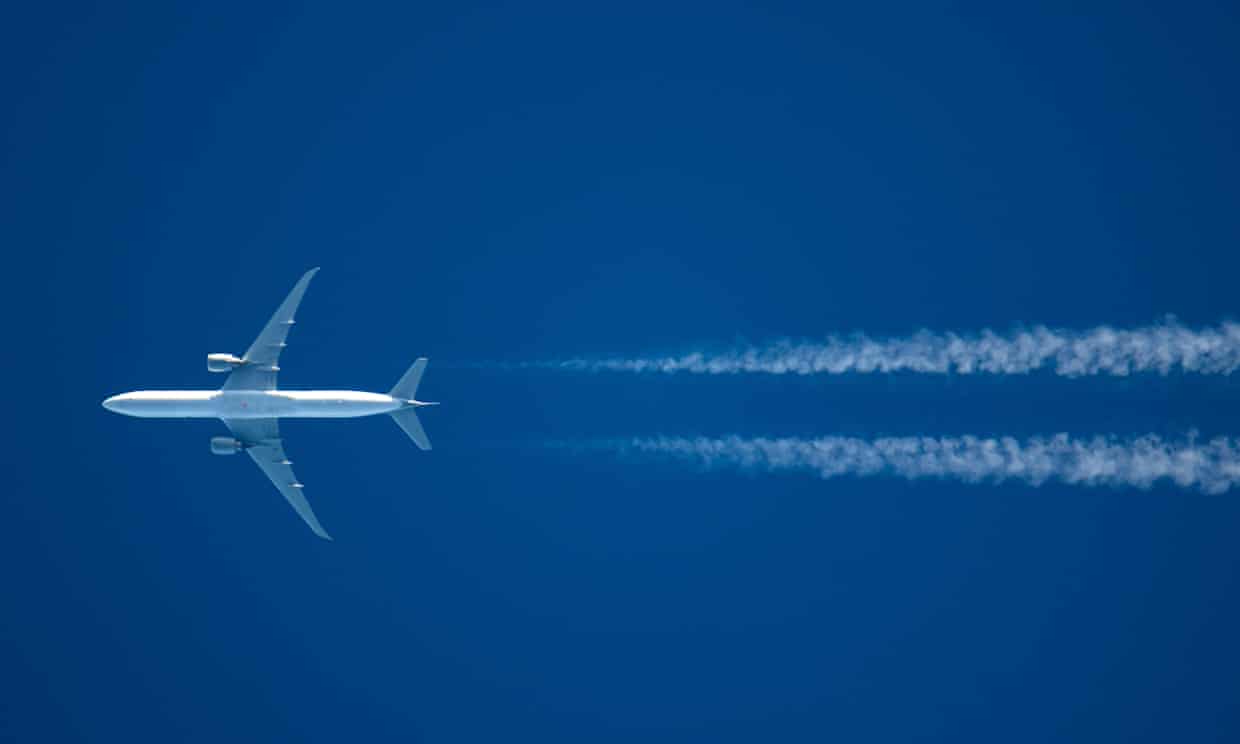Recent report
Pollutionwatch: ultrafine particles from aircraft engines endanger lives
Growing evidence suggests tiny particles can affect the heart, lungs, blood pressure and risk foetal growth

"The clear blue skies of the first lockdown are being crisscrossed by contrails once again. These white lines are caused by ice crystals that form on the huge numbers of tiny, ultrafine particles that come from aircraft engines. Ultrafine particles are far smaller than the wavelength of light, but contrails are a rare example of them being made visible.
Ultrafine particles are not just a problem in the skies above us. Airports are a large source, and my latest research has been searching for these tiny particles close to Gatwick. They were not hard to find. The number of ultrafine particles 500 metres downwind of the airport was greater than those at the kerb of London’s busiest roads. They mostly came from aircraft during takeoff and landing, but traffic, car parks and a large catering facility used to cook airline food all added to the problem.
In 2021, the Dutch Health Council and the World Health Organization (WHO) highlighted the growing evidence that ultrafine particles are damaging our health. This includes 75 studies; mostly relating to lung inflammation, blood pressure and heart problems, along with risks to foetal growth. However, technical differences between the studies meant that the WHO has not set a standard.
We are yet to understand the spread of ultrafine particles from Gatwick, but we do know they can travel a long way. Ultrafine particles from aircraft have been found across the Los Angeles suburbs. We have found ultrafine particles from Heathrow across large areas of west London, and they can be detected more than 12 miles (20km) away in the city centre. It is a similar situation in several European cities, meaning millions of people are exposed.
More than 10 years ago I was part of a study that found day to day changes in ultrafine particles in London matched the number of people dying or going to hospital with heart problems. Since then, I have tracked reductions in ultrafine particles in our cities as a side-effect of regulations to tackle other air pollutants. These include removing sulphur impurities from diesel fuel and requiring particle filters on the exhausts of new vehicles.
Researchers have suggested that sulphur is removed from aircraft fuel too, to match the tight limits on sulphur in diesel and petrol. This would be a possible solution for ultrafine particles.
In the meantime, Bristol airport’s expansion was approved earlier this month and Gatwick is applying to increase capacity by bringing its emergency runway into regular use. Ultrafine particles are not included in the environmental assessments, putting us at risk of increased air pollution for decades to come."


No comments:
Post a Comment